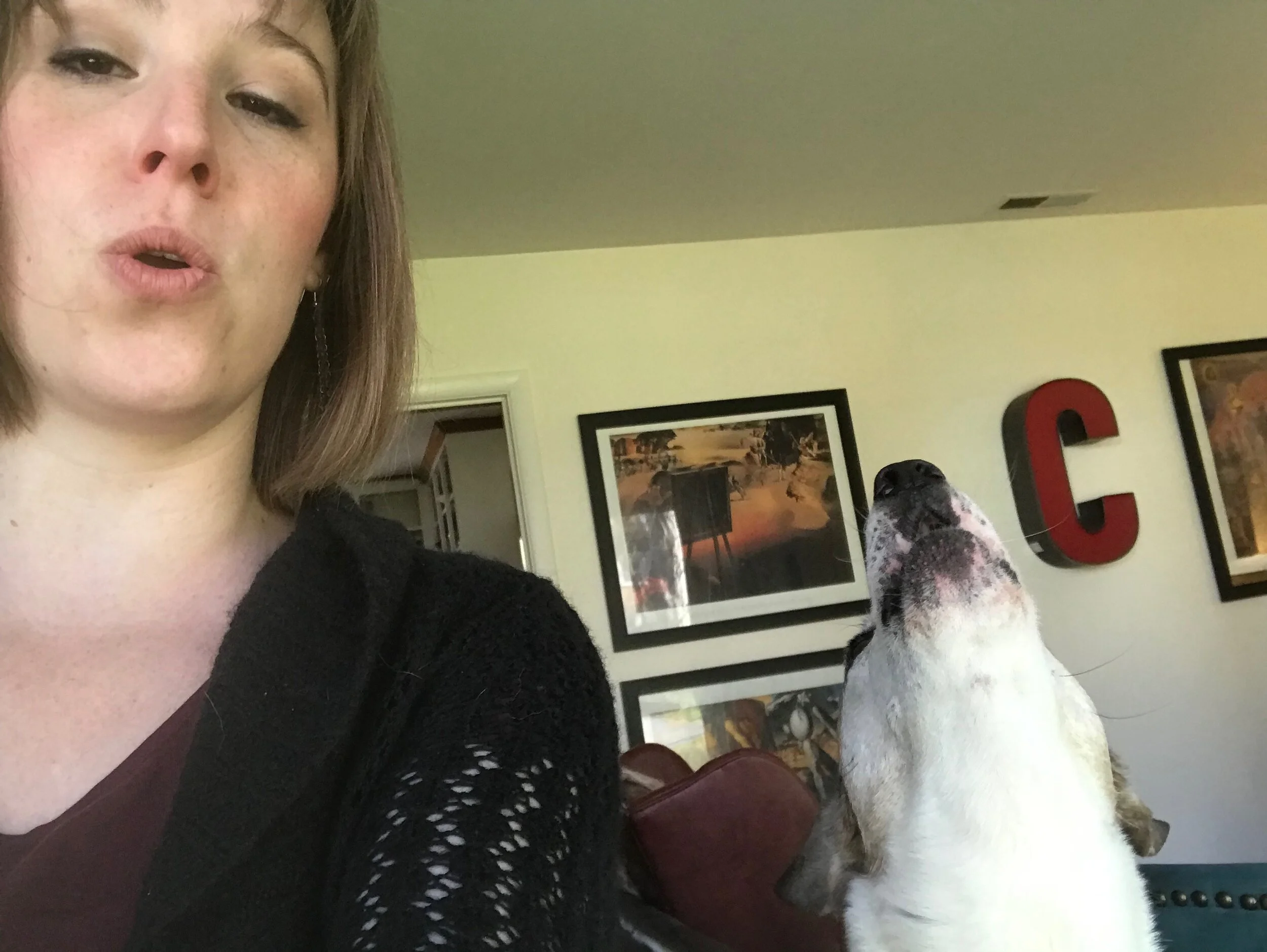This three-hours-per-day experiment actually started a few days BEFORE New Years, which is a terrible time to start anything you intend to do consistently. I don’t know about the rest of you, but the combination of New Years and the first week of the year made concentrating and consistency nearly impossible in ANY aspect of my life. I am only human. The good news is that I’ve now got an eight day streak going, so I’ll celebrate that and move along.
So how am I spending my three hours a day? So far, about half of that is practicing. Most of that remaining half has been reading this week (spoiler: it was REALLY good), and the rest of that time has been spent working on languages (hooray for DuoLingo!) and doing administrative tasks like emails, bookkeeping, etc. I also have some ideas for other things I can do like listening through old lessons/coachings, listening to music or watching an opera, and score study. This can help give some variety to my three hours, and can provide an alternative to singing on those inevitable days when I’m sick or simply can’t sing for whatever reason. Anyone have some other ideas for me?
I will admit that practicing this week wasn’t much fun - especially early in the week. I was released from my covid quarantine Oct. 31, but my symptoms (particularly the fatigue) continued for about another month and a half. Right on top of that was the pinched nerve in my back, so I basically haven’t sung with any consistency since mid-October. I expected that the first couple of days (at least) would be a real struggle, and were they ever! I’ve had to constantly remind myself how to breathe properly. How to move my air instead of locking up my body. How to lift my freaking soft palate!
I decided before I even started practicing that I would start out by working on music that isn’t in my regular repertoire so I didn’t work bad habits into the music I perform regularly. So what did I start with? I briefly worked on a couple things in the 24 Italian, and then I settled on “Deh vieni non trader” because Mozart ALWAYS makes me sing with steady air, balanced tone, and beautiful phrasing. That aria also forced me to deal immediately with my upper passaggio where I invariably want to stop my air. I’ve been singing this aria every day - not because I’ll ever be hired to sing Susanna, but because using it as an etude is making me deal with my current technical weaknesses.
I also added two new pieces to my rep this week that I’ve been procrastinating on: Composer’s aria from Ariadne auk Naxos and also “My grandmother said” from Jeremy Howard Beck’s The Long Walk.
Let me just say - Strauss is hard. There’s a lot going on. I have good musical skills. I find Strauss almost impossible to count. Not because it can’t be done, but because it feels like the downbeat is constantly shifting. But I think I’ve got it figured out! The REAL struggle was with the Beck piece. The Long Walk is about an Iraq War veteran and his family as they deal with the aftermath of his deployment, and this aria is his wife coming to terms with the ways in which being at war has effected her husband. MY husband is an Afghanistan vet, and hear me when I say, I have lived this. I’ve been sitting on this piece for two years now because I hadn’t been able to sing it without absolutely losing it. I think I’ve got it figured out now, but I will admit, this is an emotionally exhausting piece for me to sing.
On a happier note, I finished a fantastic book last week! Last spring when the world suddenly shifted to the virtual realm, I had each of my voice students pick a (voice-related) book to read. I’ve kept this up each semester since, and my students voted to read Talent is Overrated by Geoff Colvin this semester. Now that I’ve finished it, I think everyone should read this book. The author talks about how amazing performers ACTUALLY develop their skills (spoiler alert: they’re not born with it). He looks at great performers from many different fields such as Mozart, Jerry Rice, and Warren Buffet. Turns out, the secret sauce is…wait for it….PRACTICE! Specifically what he calls “deliberate practice” (something Colvin outlines in the book, but every professional musician knows this process). Colvin also looks at why some people choose to choose to put themselves through the ordeal of deliberate practice while others simply…don’t. If you’re looking for an informative and well-written read on how to become a great performer (in any field), you should read this book!
Well, I think I’ve been your ear (your eyes?) long enough for this week. What have you been reading lately? I want to know!



















